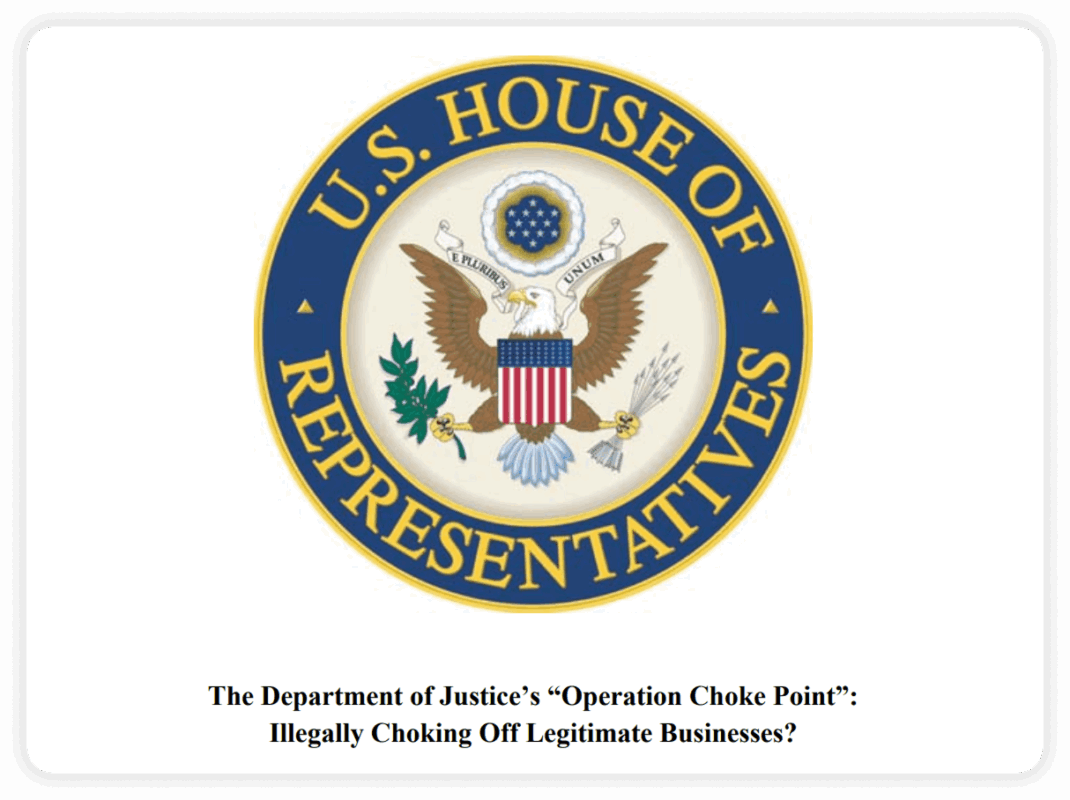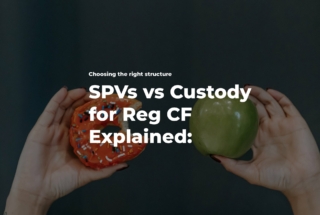Operation Chokepoint 3.0 or How Bank Fees Impact Fintech and Crypto Platforms
No time to read? Let AI give you a quick summary of this article.
In the evolving landscape of financial technology, a new challenge has emerged for fintech and cryptocurrency platforms in the United States.
Dubbed “Operation Chokepoint 3.01,” this initiative involves major banks imposing exorbitant fees and restrictive policies that threaten the viability of the alternative finance platforms.
This article delves into the specifics of this development, its implications for the industry, and how it contrasts with the more supportive regulatory environment in Europe.
What you will learn in this post:
What is Operation Chokepoint 3.0?
“Operation Chokepoint 3.0” refers to a series of actions by U.S. banks aimed at limiting access to financial services for fintech and cryptocurrency companies.
The previous government-led initiatives were aimed at restricting these sectors. But this version is driven by the banks themselves. For example, institutions like JPMorgan Chase are implementing high fees for data access and fund transfers2 to crypto and fintech platforms — creating a financial barrier to entry.

This strategy is a modern variation of the original Operation Chokepoint3. The original Operation Chokepoint was launched in 2013. It was aimed to restrict certain “high-risk” industries, such as payday lenders and adult entertainment, by cutting off access to banking services, often without a formal legal process. It was discontinued in 2017.
Operation Chokepoint 3.0 revives this concept. But now, it is driven by private banks rather than the government. Institutions like JPMorgan Chase and Bank of America now impose high fees, data restrictions, and compliance burdens on fintech and crypto firms. This is framed as risk management, but critics view it as using market power to limit competition2.
Unlike the original, this phase does not rely on government orders but on economic control. By imposing high costs, banks can block access without laws. It, in turn, will make it more difficult for startups to operate. This shows a significant shift in power, from regulatory oversight to private financial control.
The impact on fintech and crypto platforms
The imposition of high fees and restrictive policies by banks has a significant impact on fintech and cryptocurrency platforms. To operate efficiently, these platforms integrate with traditional financial systems. However, when banks charge steep fees for data access or fund transfers, it increases operational costs and complicates the user experience.
For instance, fintech companies that offer services like peer-to-peer lending or digital wallets may find it financially unfeasible to maintain relationships with banks that impose such fees.
Similarly, cryptocurrency exchanges and wallet providers depend on efficient banking services to facilitate deposits and withdrawals for their users. When banks restrict these services or impose high fees, it negatively impacts the functionality and attractiveness of these platforms.
This is why for U.S.-based entrepreneurs in the fintech and cryptocurrency sectors, the current landscape presents more challenges than opportunities.
Regulatory responses and industry pushback
Over 80 cryptocurrency companies have petitioned the U.S. government4 to prevent banks from charging fees for access to consumer financial data. They argued that such costs hinder innovation and competition.
Industry experts warn that restrictive practices, such as heightened compliance burdens and steep fees, risk stifling the growth of fintech and cryptocurrency in the U.S.
They believe that this threatens the country’s position as a leader in financial innovation, especially as other regions adopt more supportive policies.
A comparative look: Europe’s supportive approach
In contrast to the U.S., Europe has taken proactive steps to foster the growth of fintech and cryptocurrency platforms. The European Union’s Markets in Crypto-Assets (MiCA)5 regulation is a comprehensive framework aimed at providing legal certainty for crypto assets and services. MiCA addresses issues such as consumer protection, market integrity, and financial stability. It enables the EU to foster innovation while maintaining investor protection and stability.
European regulators have been more open to integrating fintech and crypto platforms into the traditional financial ecosystem.
One of the most important is PSD2, the EU’s Payment Services Directive 26, which came into force in 2018. PSD2 enforces banks to open up access to customer payment accounts (with user consent) to licensed third-party providers via open APIs. This enables fintech companies to develop new services, including account aggregation, smart payments, and personalized financial tools.
In addition to PSD2, regulators are advancing reforms such as FIDA (Financial Data Access)7. It extends open banking principles beyond just payment accounts and allows startups to include data from broader financial services (like insurance or investment accounts).
The contrast with the U.S. highlights the potential benefits of a more inclusive and forward-thinking approach to financial regulation.
Additionally, the rise of decentralized finance (DeFi) platforms presents an alternative avenue for innovation. By leveraging blockchain technology, these platforms can operate independently of traditional banking systems, potentially circumventing some of the challenges posed by Operation Chokepoint 3.0.
How to build an innovative investment platform with LenderKit
While the so-called “Operation Chokepoint 3.0” is drawing attention, there’s never a perfect time to launch a crowdfunding or investment platform.
If you’re ready to step up your game and launch your own platform to join the broader alternative finance movement in a regulated market, consider LenderKit’s white-label investment software.
LenderKit provides ready-made infrastructure for crowdfunding, private equity, and online investment platforms, enabling startups to launch faster and with lower overhead. Its modular design lets firms integrate alternative payment providers, digital wallets and blockchain-based solutions — reducing exposure to excessive banking fees.
With LenderKit, innovators in the financial sector gain the tools to compete on equal footing, ensuring that banks don’t control financial access, investor trust or platform scalability.
To learn how the solution works or discuss your specific requirements, get in touch with our team today.

Article sources:
- Crypto Debanking Persists Despite Trump’s Pro-Crypto Push, Says Unicoin CEO
- Operation Chokepoint 3.0: Banks Are Quietly Tightening the Noose on Crypto
- PDF (https://oversight.house.gov/wp-content/uploads/2014/05/Staff-Report-Operation...)
- US crypto firms push for blocking bank fees on data | The Paypers
- Digital finance: agreement reached on European crypto-assets regulation (MiCA)
- Which Financial Regulation Changes Impacted Fintech Development? - BlockTelegraph
- The Financial Data Access (FiDA) Regulation



